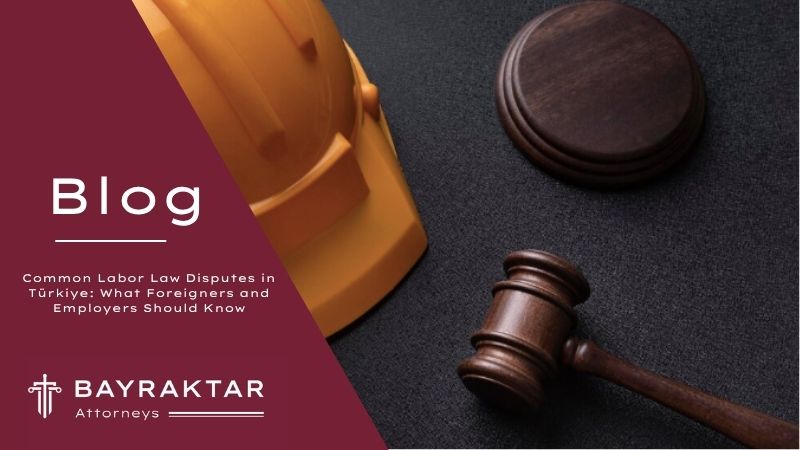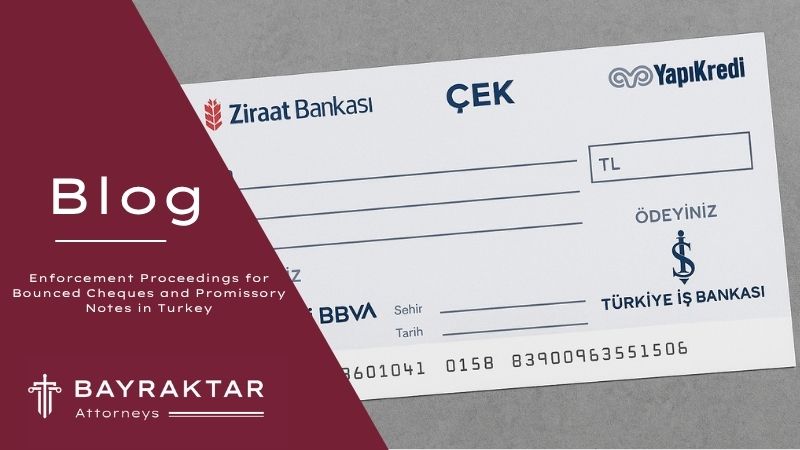
Duties And Powers Of Managers In Limited Companies in Turkey
In limited liability companies, management authority may be held by one or more individuals with the title of director. Legally, the director or directors can be chosen from among the firm’s partners, or a person who is wholly external to the company can be elected as a director. As the governing body of a limited liability corporation, the director or directors have particular responsibilities and authority. Many of them are governed by the Turkish Commercial Code as the non-transferable and inalienable responsibilities and powers of the manager or managers. Likewise, this matter may be governed by a clause in the firm contract.
This blog discusses the function of the director or directors in a limited corporation and provides general explanations of their authority.
Management in Limited Liability Companies
Articles of Association must control the management and representation of limited liability companies. In truth, Article 623 of the Turkish Commercial Code states, “The management and representation of the firm are governed by the company contract, which is another term for Articles of Association. Management and representation of the company may be delegated to one or more partners with the title of director, all partners, or third parties. As the body having management authority in limited liability companies, the director or directors must be specified in the company’s articles of organization or chosen by the general assembly and registered with the trade registry.
Being the governing body of the limited liability company, the directors are empowered to make and carry out all management-related decisions that are not reserved for the general assembly by law or the articles of association. In this regard, they are both the company’s management and executive body.
The Unalienable Managerial Powers
With the revised version of the Turkish Commercial Code, a distinction was formed between the company’s organs in terms of their functions, and the idea of power parity was implemented. General Board is no longer authorized in all matters and does not have the right to make all decisions, according to the legal system and limited business organ structure.
Article 625 of the Turkish Commercial Code, a relatively new regulation, enumerates the inalienable powers of the director or Board of Directors in limited liability firms as follows:
- Senior management of the company and issuing orders as appropriate.
- Supervision of the individuals to whom a portion of the company’s management has been delegated to ensure compliance with the law, articles of incorporation, bylaws, and directions.
- Decision of the company’s governing body within the confines of the law and the company’s charter.
- Preparation of the company’s financial statements and annual report, as well as, if appropriate, the group’s financial statements and annual report.
- Preparing for the Annual General Meeting and implementation of the resolutions of the General Board.
- Establish accounting, financial auditing, and financial planning, as required by the company’s management.
- Notifying the court about the insolvency of the corporation
The duties and authorities indicated above cannot be delegated to a separate entity or individual within the organization. Directors may not delegate these rights to the General Board or to other to-be-established boards, groups, or committees, neither by the Articles of Incorporation nor by a resolution. Moreover, directors are prohibited from waiving their powers. Because the requirement is mandatory. Yet, in the remainder of the article of the Law, the company contract stipulates that the director or directors may be required to submit certain choices they have made and individual issues for General Board approval. Therefore, even if such an approval stage is established, this will not eliminate or diminish the directors’ responsibilities for General Board approval of taken decisions. In other words, the directors retain the primary authority and duty.
The Senior Management Concept
“Senior management” should be interpreted in the first paragraph of Article 625, as it will be necessary to apply the qualification in the justification of the law. Accordingly, what is meant by “senior management” is determining the objectives of policies such as investment, financing, and managing dividends, particularly the general business policy, demonstrating the tools chosen to achieve them, determining whether or not the objectives have been met, controlling the budget’s execution, and determining the strategies. The director or board of directors may also make decisions on the attainment of policies and objectives and issue directives regarding the implementation of plans.
Assignment of Tasks in the Presence of Several Directors
If the company has more than one director, the General Board appoints one of them, whether or not he or she is a partner, as the chairman of the Board of Directors. If there is only one director, this person is permitted to call and conduct the General Meeting; if there are many directors, the chairman of the Board of Directors is authorized to do so. These individuals are also entitled to provide all explanations and announcements unless the General Board determines differently or the Articles of Organization do not stipulate otherwise (TCC art.624).
Representation within Limited Liability Corporations
Directors are permitted to represent the limited liability business. The relevant regulations governing stock corporations are analogously applied to the amount of the directors’ representational powers, the limits of their authority, the determination of authorized signatories, the manner of their signature, and their registration and publication. According to the first paragraph of the relevant provision, people authorized to represent a joint stock company may engage in any type of business or legal transaction that is within the scope of the company’s mission and operations. Although the scope of operation is indicated in the first paragraph of the clause, the “ultra vires” requirement relating to the company’s power of attorney has been eliminated in the new version of the Turkish Commercial Code.
In the second paragraph, the pertinent regulation is also swiftly mentioned. So, the power of proxy is no longer dictated only by the company’s scope of business. In other words, since transactions that do not fall within the scope of the company’s mission and operations will also bind the company and the company will be liable to third parties as a result of this transaction, the company has recourse against the representative who exceeds the scope of the power of proxy. The exception to this rule is where it can be demonstrated that the third party knows or is in a position to know that the transaction is outside the scope of the company. The transaction will not bind the corporation in this instance. But, the publication of the company’s Articles of Organization is not sufficient proof in and of itself to prove this point.
The decision detailing the company’s permitted modes of representation and authorized representatives must be recorded and published in the trade registry. Although when the representation of the representatives, i.e., the limitations and scope of their representational authority, is recorded in the trade registration, this does not bind the bona fide parties conducting business with the company. Because only limited power of proxy confined to the double signature (or joint signature) or limited to the main office or branch business shall be recorded in the commercial registry. The registration of additional subjects shall not have any effect on third parties. In the event of a disagreement, the extent of the directors’ ability to represent the company is established by the registration in the trade registry and the publication in the Trade Registry Gazette.
If a limited liability company has a single partner, the validity of contracts between this partner and the company depends on whether the company is represented by a single partner at the time of the contract. This need does not apply to contracts involving everyday, inconsequential, and routine transactions in accordance with market conditions.
Lastly, the General Board has the right to terminate, remove, and limit the authority of management and representation. The General Board may fire a director or directors and limit their management and representation powers.
Conclusion
With limited liability businesses, the authority of management and representation rests with the director or the Board of Directors. In general, the limited liability corporation is liable for all transactions conducted by its authorized representatives, regardless of whether or not they are business-related. In rare situations, it is feasible to argue and prove the opposite. The issue is significant because it involves the company’s liability for the representative’s acts and the right to seek redress.
Contact our team if you have any queries or concerns regarding the directors or the board of directors’ power of attorney and representation authority.







